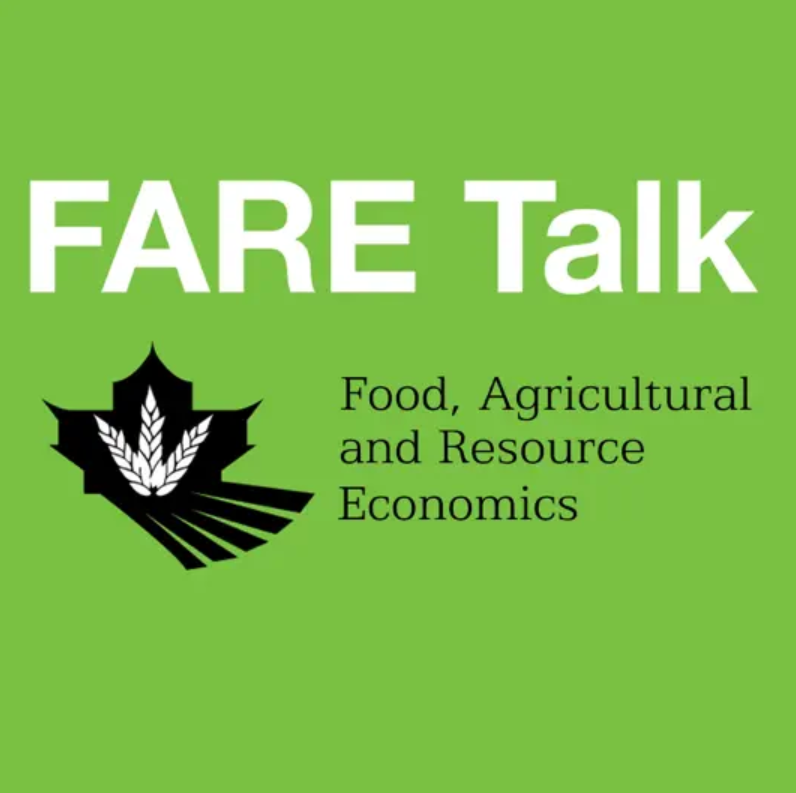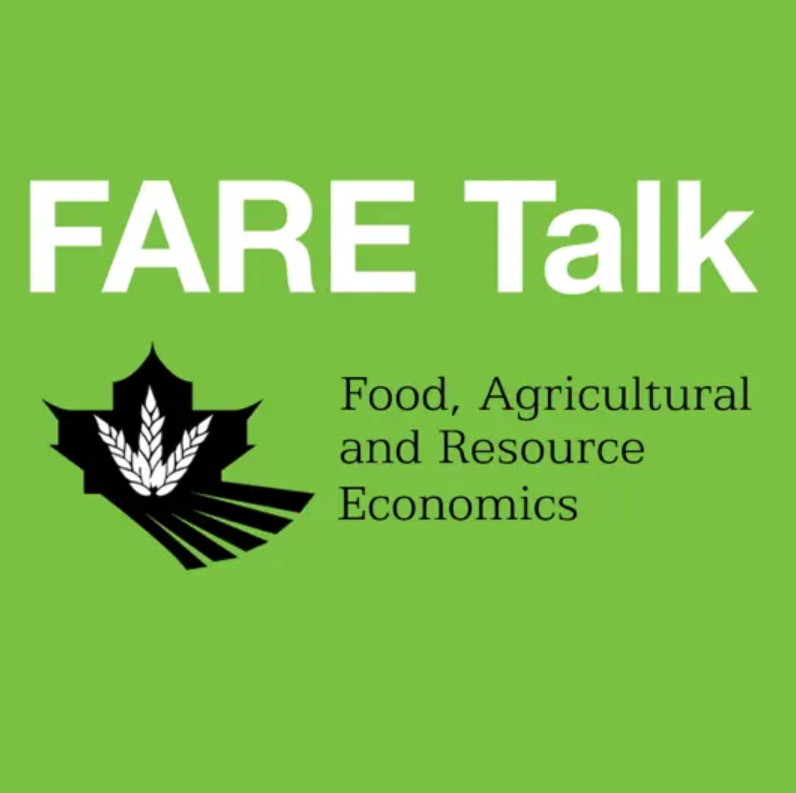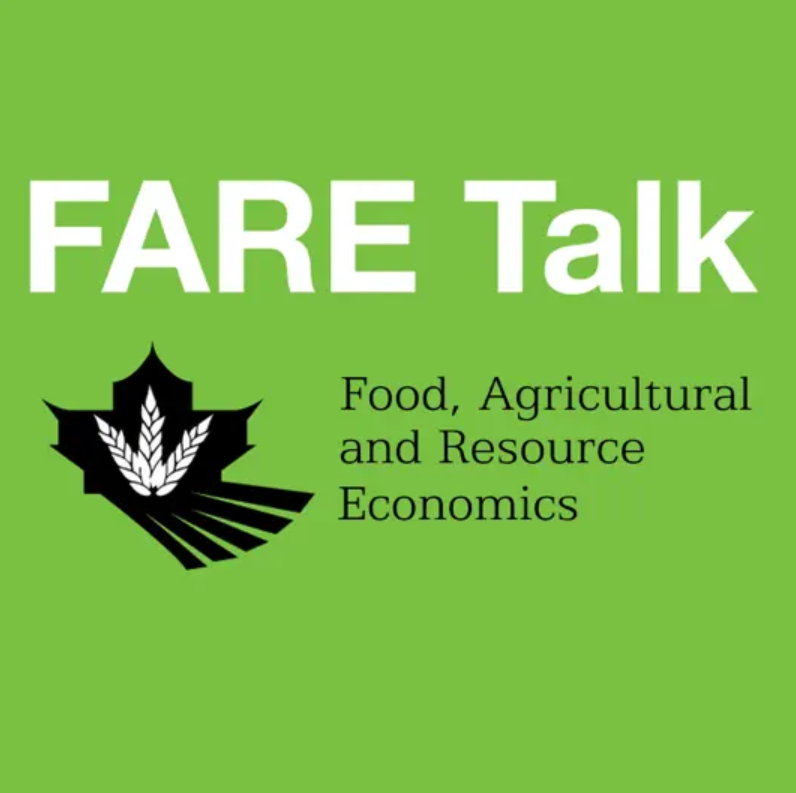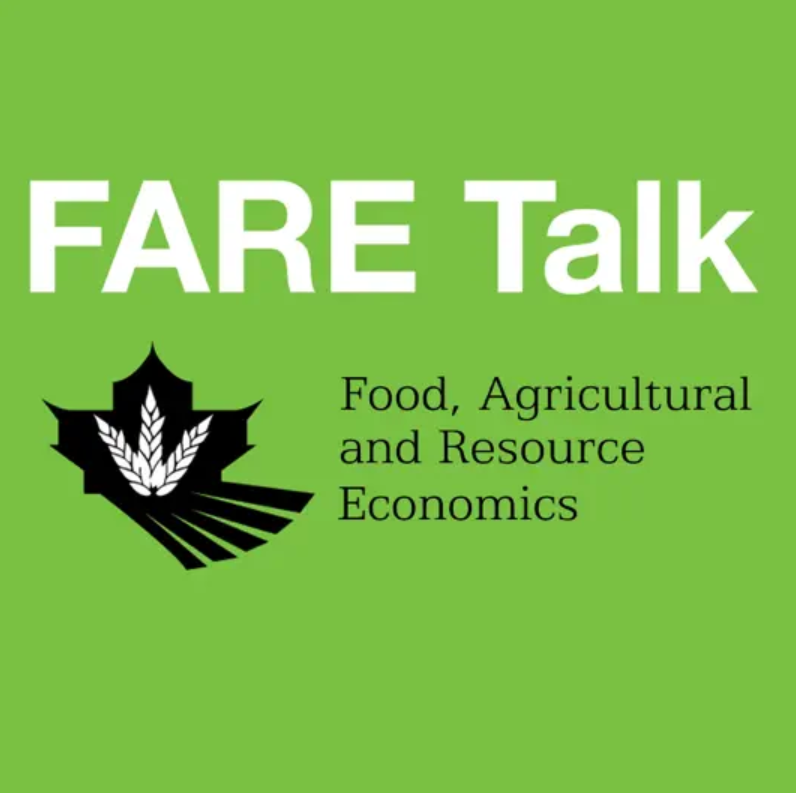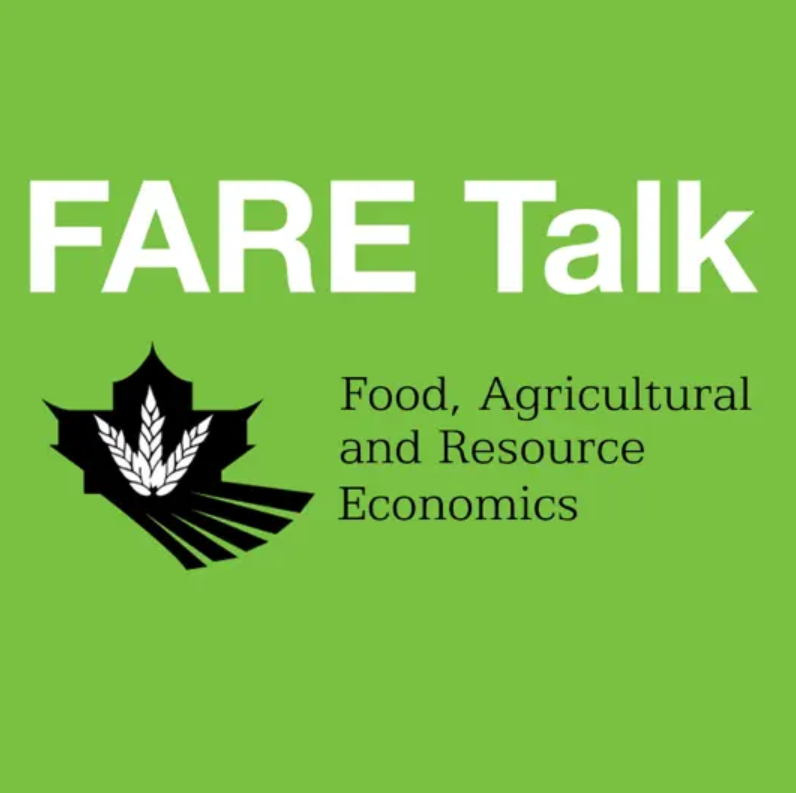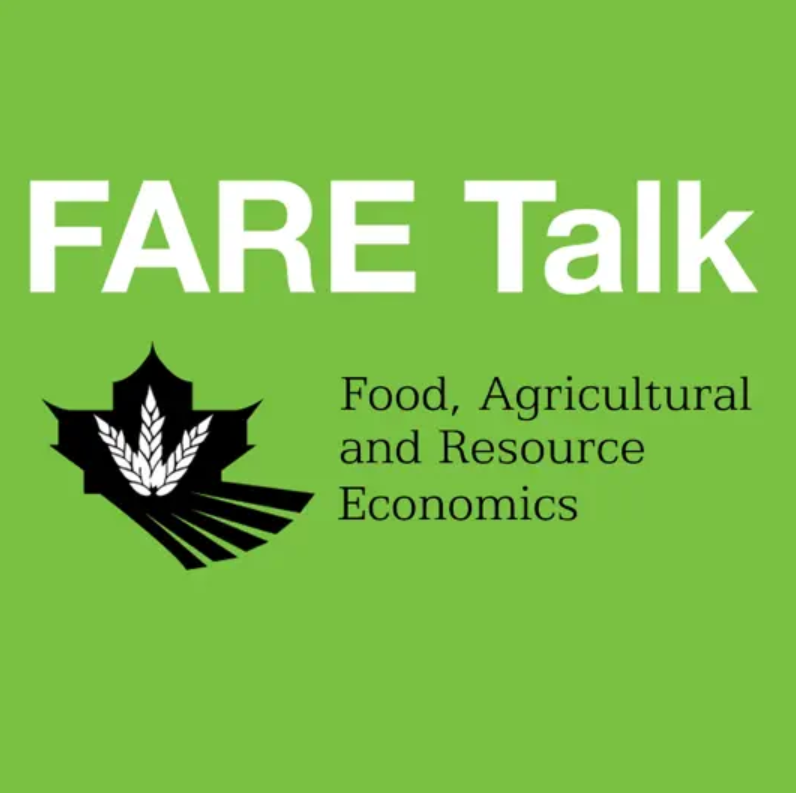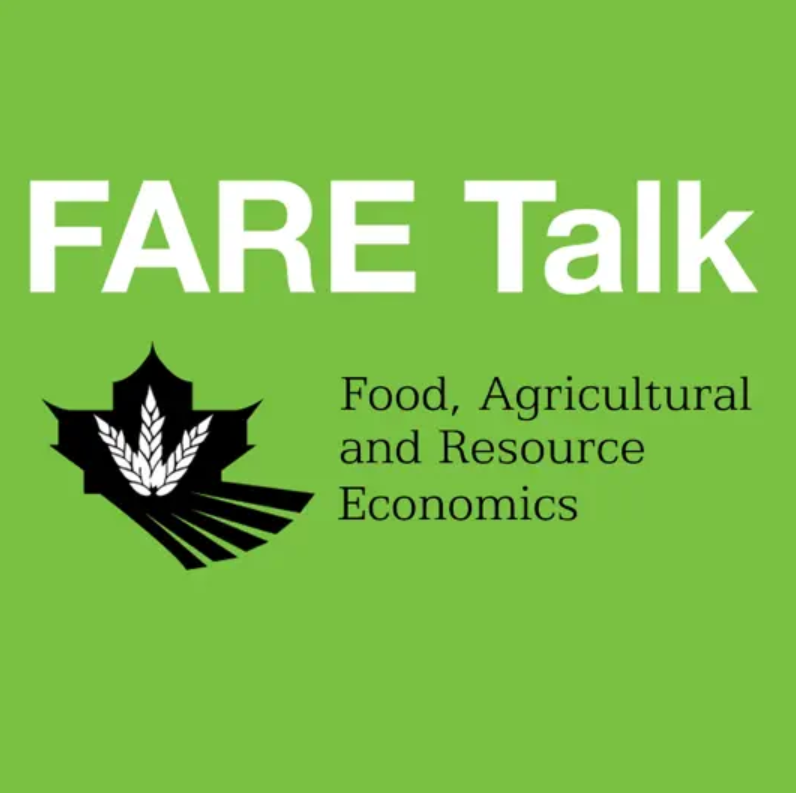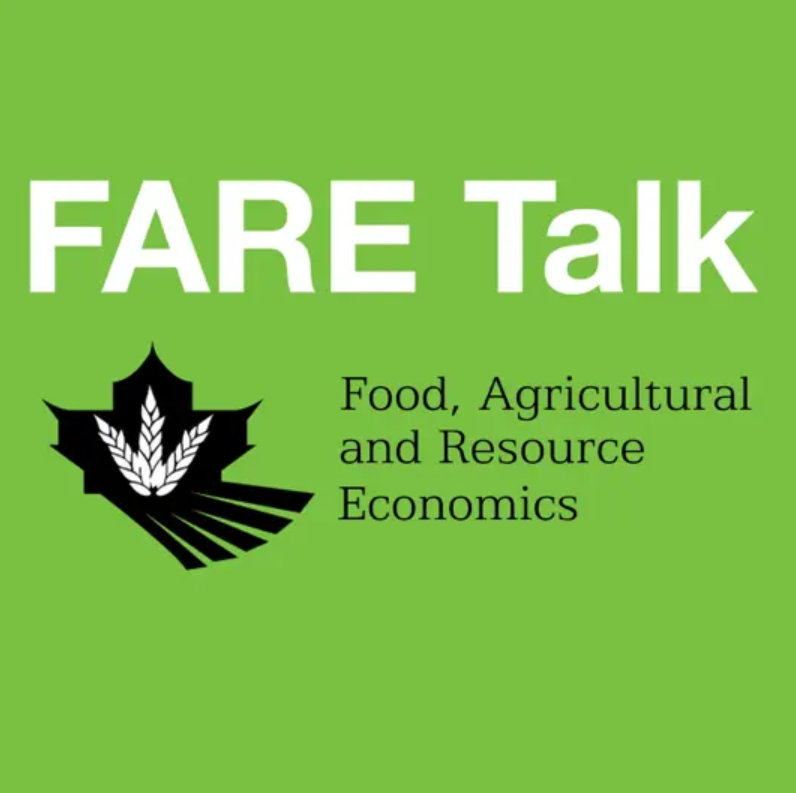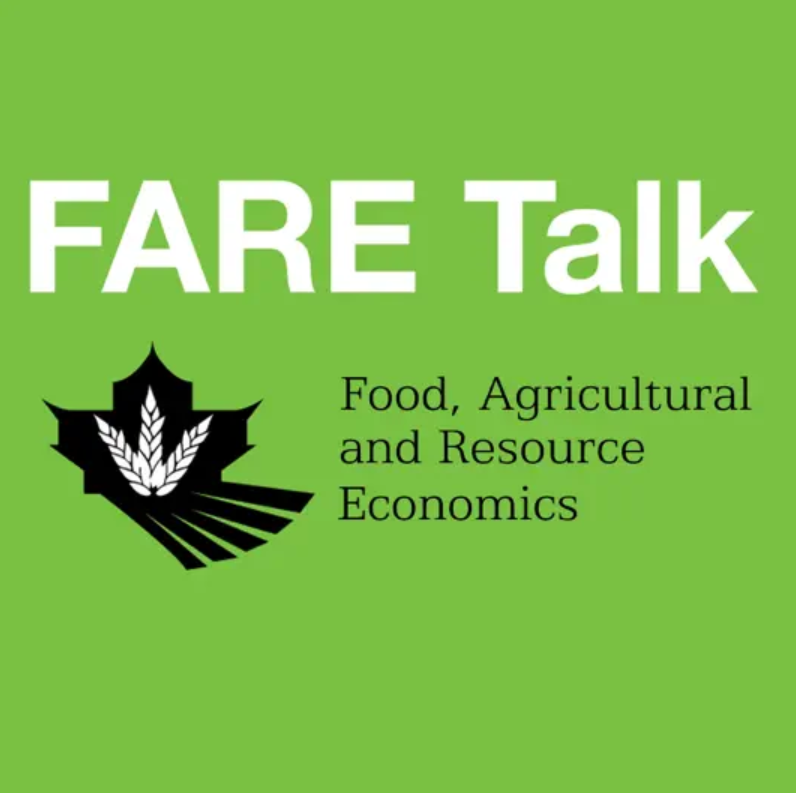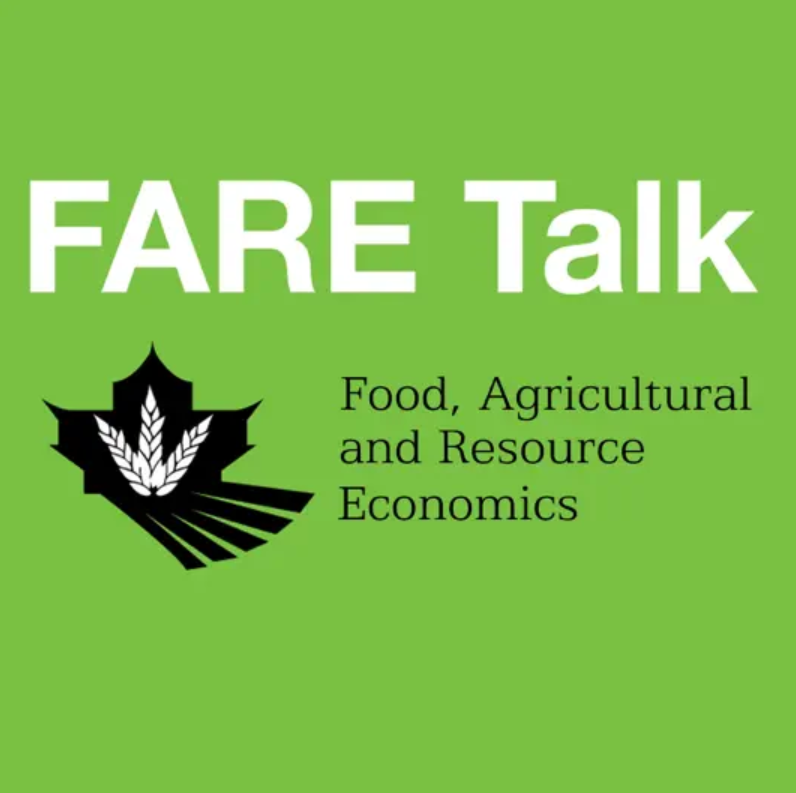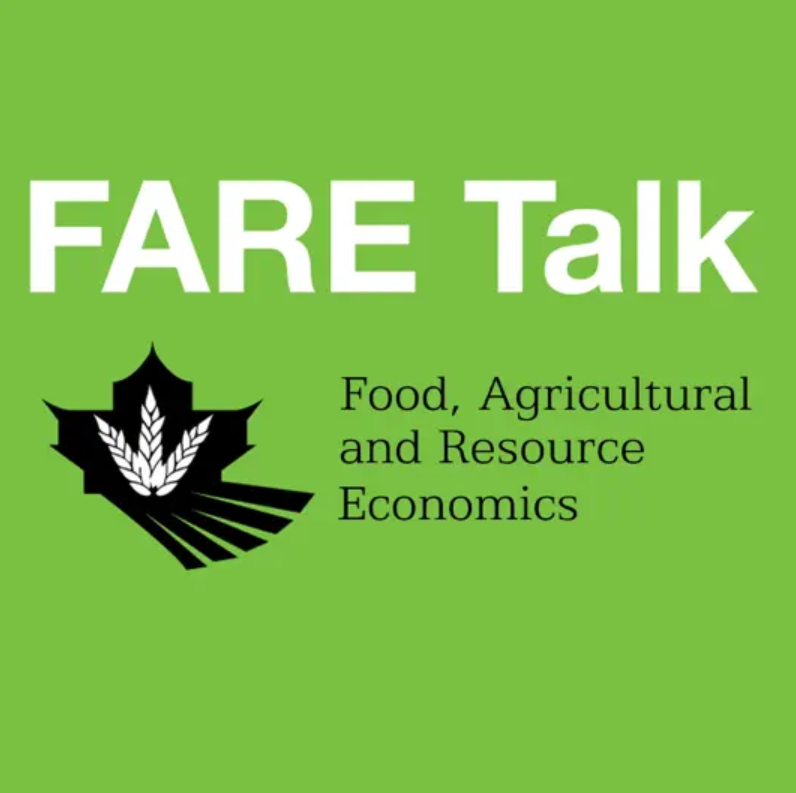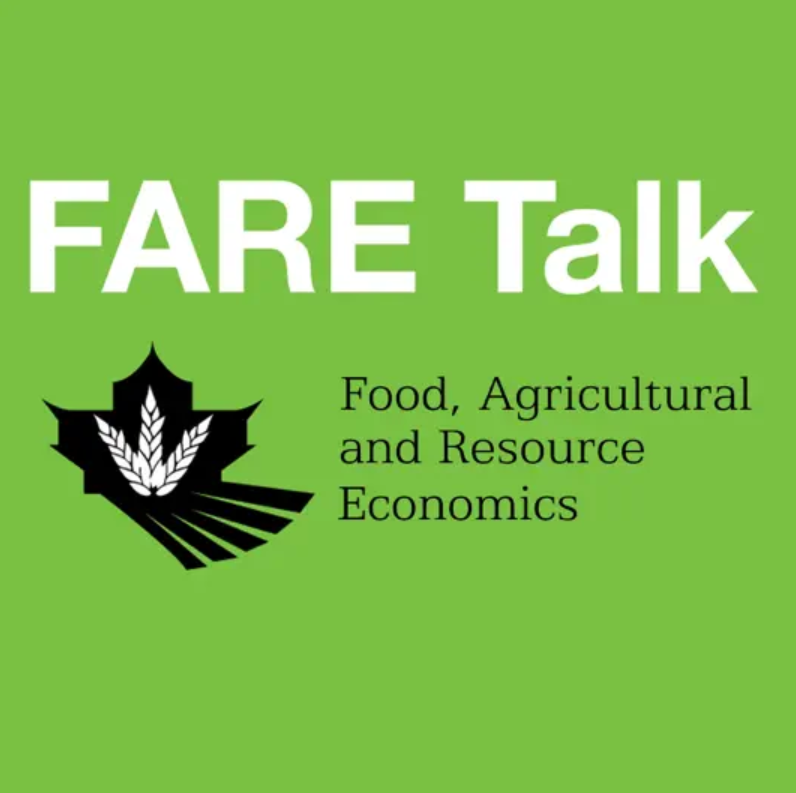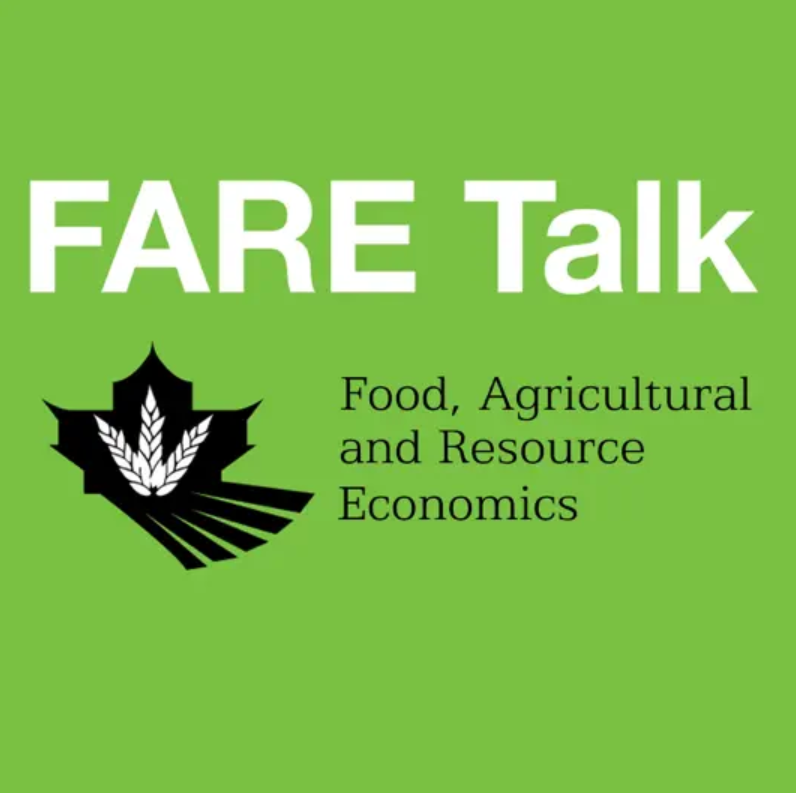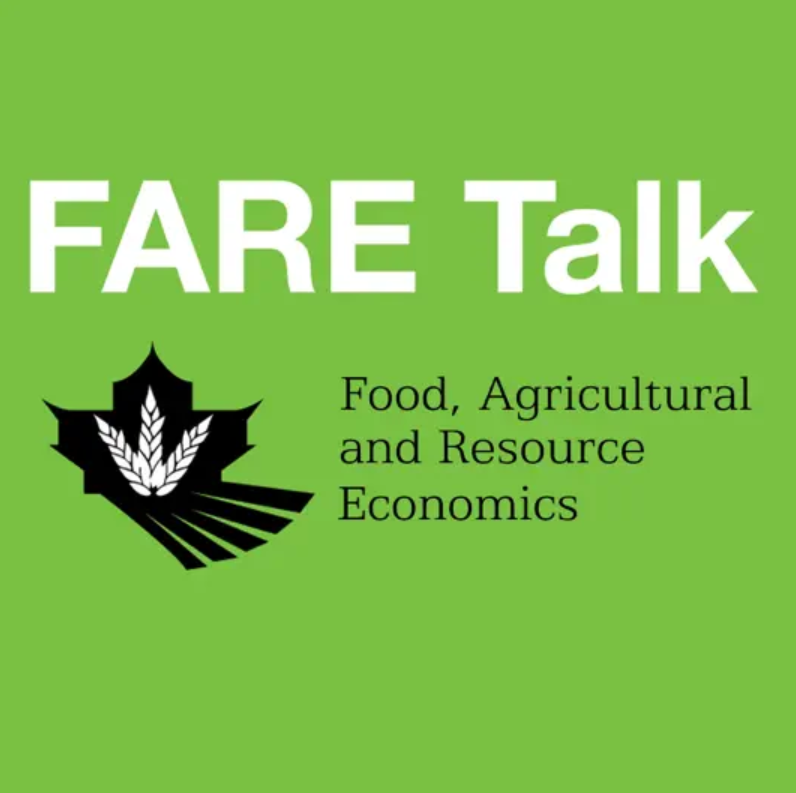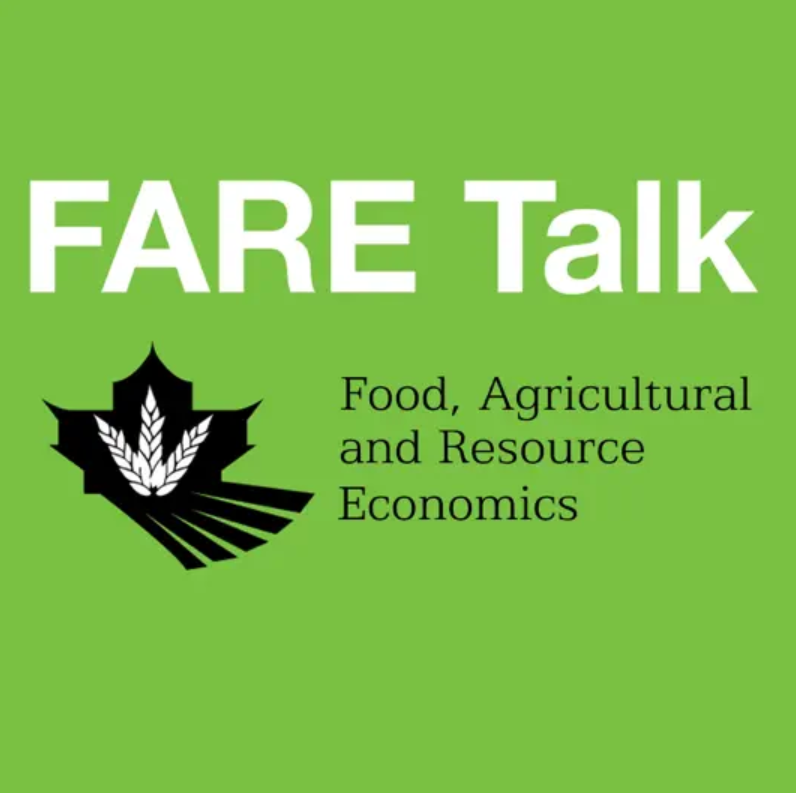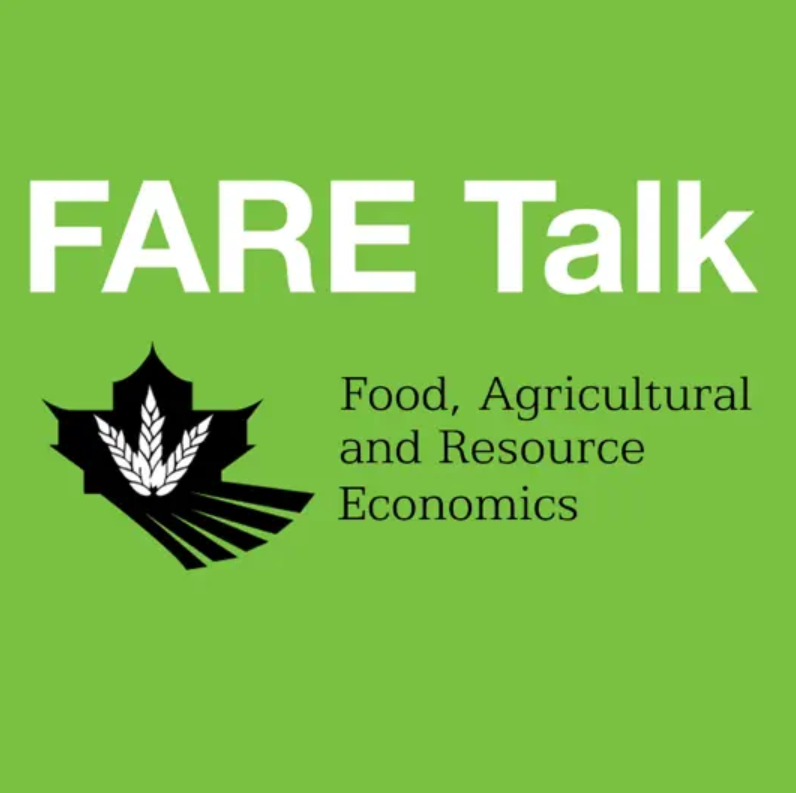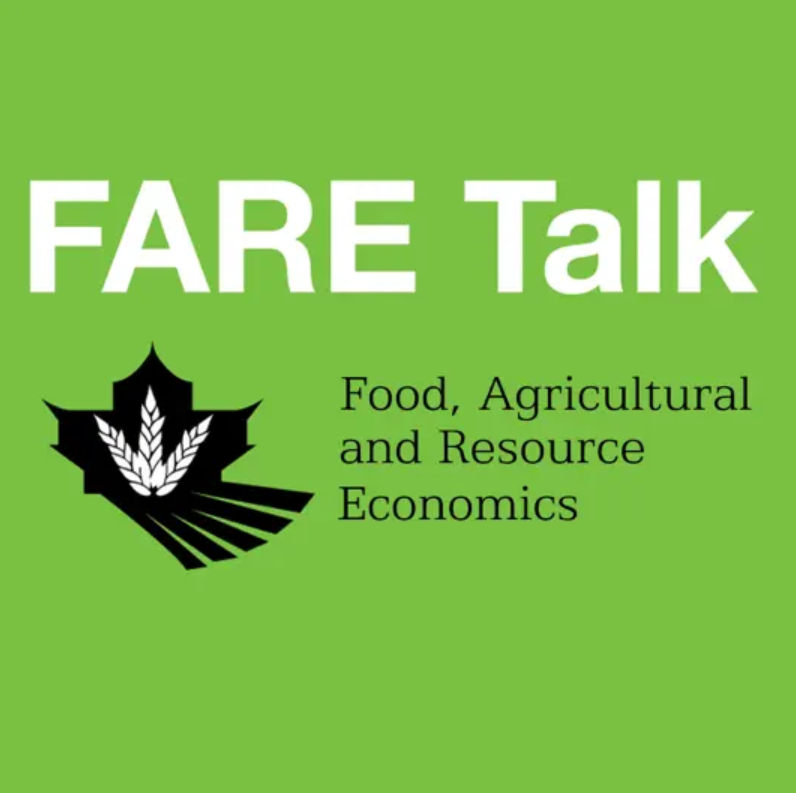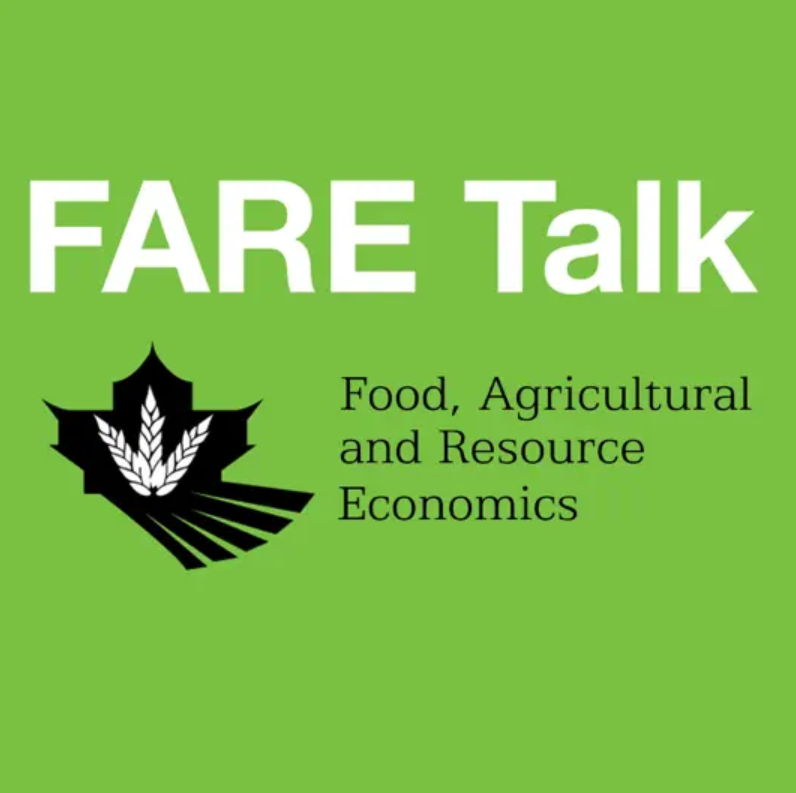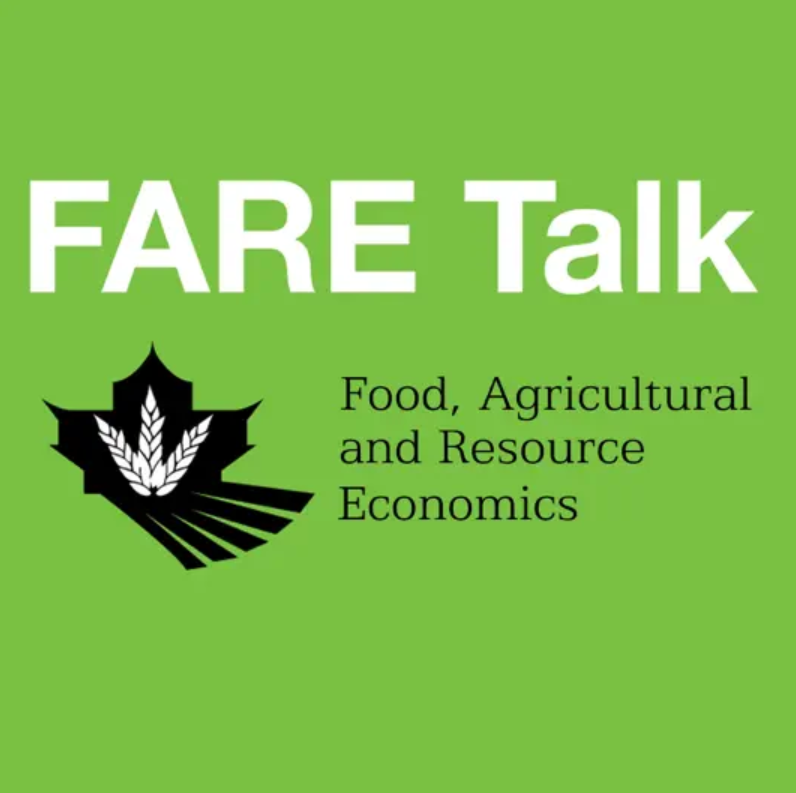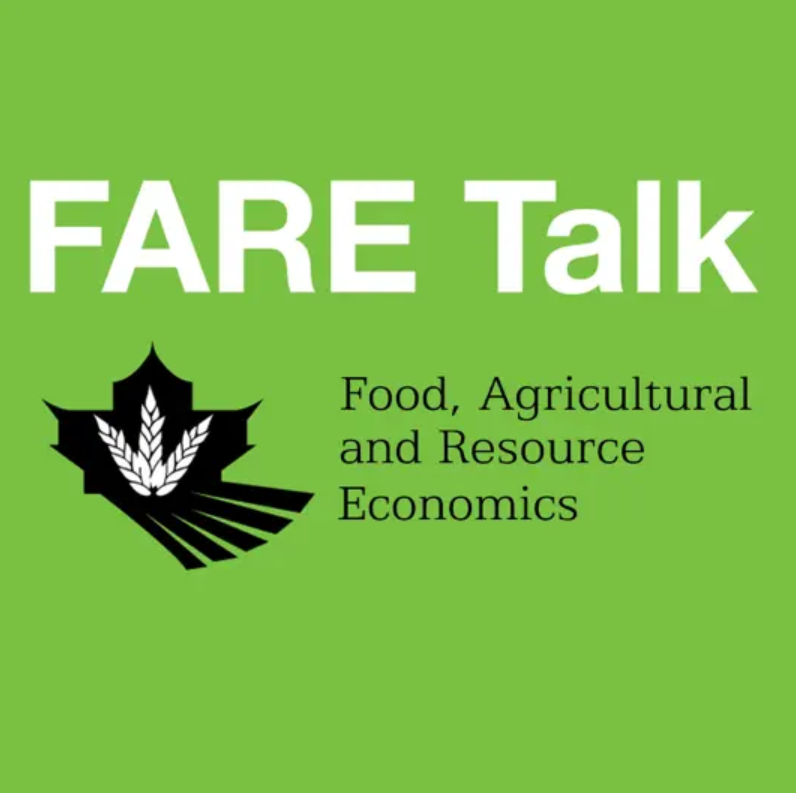The Origins, Nature, and Content of the Right to Property: Five Economic Solitudes - February 15th, 2012
Description
Dr. Glenn Fox and Dr. Brady Deaton discuss Glenn's longstanding interest in property rights and his recent publication in the Canadian Journal of Agricultural Economics.
Transcript
Dr. Brady Deaton: Welcome to FARE Talk, where we set out to provide enduring discussions on contemporary topics relevant to our economy with particular emphasis on food, agriculture, and the environment. My name is Brady Deaton, Jr., of the Department of Food, Agriculture, and Resource Economics at The University of Guelph. I'll be your host. Today, Dr. Glen Fox and I will be discussing his long-standing interest and research on property rights. Glen is an agricultural economist at the University of Guelph. He was recently honored as a fellow of the Canadian Agriculture Economic Society and his fellow address, recently published in the Canadian Journal of Agriculture Economics. This address will be linked to this podcast. Glen, welcome to FARE Talk.
Dr. Glenn Fox: Thanks Brady.
Brady: In your paper, you point out the many long-standing controversies in agriculture and natural resource policies are really debates about the nature of property rights. That's the issue that I want to tackle in today's podcast, but before I do, I wonder if there's some kind of story or anecdote that you can give that kind of sets the stage for our listeners.
Glenn: I started working on this topic about 20 years ago, actually, Brady, with one of my master's students named Mike Ivy. And Mike and I were interested in a topic which had become sort of visible or had emerged in importance in the late 1980s, in the early 1990s on the question of when or under what circumstances does a regulation become so costly or so burdensome to a landowner to become the equivalent of a taking, to become tantamount to expropriation.
And so we started to read legal literature, economic literature, read some case law, and we very quickly were confronted with a paradox. And the paradox was that most of the literature, whether or it was being written by economists or by lawyers or by political scientists or ethicists, dealt with a small number of cases typically that had gone to the U.S. Supreme Court.
They used apparently the same words and concepts, but when they got to the punchline, this critical question, does regulation constitute a taking, the answers were all over the map. And we had a great deal of difficulty figuring out why when there's only so many cases and they appear to all be using the same words, that the interpretations or the conclusions could be so divergent.
And after staring at this for a while, we realized that there was something else behind the scenes. And the something else behind the scenes was that each of the authors was invoking a different theory of property rights. And initially we identified three different theories of property rights. Subsequently, we've refined that and now have a list of five theories of property rights that I think exist in work that economists do, but also that legal theorists do.
And the five are: classical liberalism, pragmatism, utilitarianism, legal positivism, and then modern libertarianism.
Brady: Now in the regulatory [inaudible 00:03:10 ] situations in the United States there's this reference to the Constitution. So, the Fifth Amendment of the Constitution. In the Canadian context, is there something like the Fifth Amendment there?
Glenn: That's a good point. The reason that this word "takings" came up, the reason it's in this literature is because of the one clause referred to as the "takings" clause in the Fifth Amendment to the U.S. Constitution. There is no equivalent to a "takings" clause in Canadian constitutional law. There is another paradox and this is still something that puzzles me today and I don't have a good answer to this is that while there is a "takings" clause in the U.S., there is not a "takings" clause in Canadian constitutional law. The practice has generally been in Canada, when regulations have been found to be excessively burdensome that property owners were compensated whereas the practice in the United States under "takings" clause has been generally that property owners have not been compensated when they've subject to certain types of regulations. So that's a bit of a mystery to me, but -
Brady: I mean I think one of the [00:04:18 ] in our area, one of the things you hear referenced a lot is this Crow rate subsidy. And that's an example of where farmers or landowners were ultimately compensated for the fact that their guarantee of basically lower shipping rates was taken away by an act. Is that something that comes up in your understanding of this topic and kind of contrasting the U.S. situation with Canada?
Glenn: I think that's a related development, but it's really somewhat different from the regulatory takings. In the case of the Crow rate, which were these grain transportation subsidies off the prairies, those subsidies meant that the price of grain at the farm gate in the prairie provinces was higher than it otherwise would be because essentially those farmers were price takers so whatever price they got was the world market less the transportation cost.
If the transportation was subsidized then their price went up. So grain farmers had a higher price. Livestock producers in the prairies were at a disadvantage because their feed costs were higher.
So when the decision was made to phase out these Crow rate subsidies, there was compensation ultimately that was paid to farmers because of this sort of entitlement that had emerged, particularly to grain farmers. They had that built into their cost structure and really, I think for sort of reasons of political expediency, the government said, "We need to get away from this policy and we recognize that there are people whose livelihood has been helped by this policy and who will be hurt when we take it away. But we're going to take it away so we'll compensate them for that.
The regulatory takings issue is really something quite different and maybe an example of wetland policy, might be an example. So you think of a farmer who's got a wetland or a marsh on his or her property. Then there's some policy measure that designates that as some sort of protected area under a wetlands protection policy. Once that designation is imposed, then that restricts what the farmer could do. Up until that point, maybe the farmer could drain the wetland and turn it into a mock gardening agricultural operation. Well, now that option's off the table and the farm is arguably worth less than it would have been, because the option to do that has been removed. And so the farmer might say, "My farm was worth a million dollars before and now it's worth half a million dollars. I need to be compensated for the imposition of that regulation to protect the wetland on my farm.
Brady: So just to make sure I've got it straight. In Canada, if the government compulsory takes the land, actually takes it, then there's the tradition of compensation. But if the question or the line that you've been kind of working on is when you change the economic value or the market value of something through regulation, then at what point does that constitute something that should be compensated for? And of course that's the big debate in the U.S. literature examining Supreme Court decisions. And it's still [inaudible 00:07:35 ] your observation of things that are going on in Canada.
Let's take a couple of cases that you think - That you cover a number of actually applied situation in the Canadian context to examine the origin of property rights and how that helps illuminate the controversy around different natural resource issues.
Let's take a couple of those and maybe just illuminate this idea of the origins of property rights being very helpful in illuminating aspects of that controversy.
Glenn: Well, one of the examples that I understand you've done a previous podcast on this subject already, but- One of the long-standing controversies in Canadian agricultural policy has to do with the Wheat Board. And under the framework developed by federal legislation for the prairie provinces, producers of certain types of grain had to sell that grain to the Wheat Board. It was called a [inaudible 00:08:30 ] selling agency. It was the monopoly buyer that was then tasked with the job of marketing that grain, particularly to export markets. There are numerous sides to that debate, but I think two of the sides that I think illustrate these different property rights are on the one hand, some farmers and some agricultural economists and some people at the Wheat Board argue essentially a utilitarian theory of property rights.
And the utilitarian theory of property rights says that an arrangement, a policy, an institution is a good policy or a good institution if it maximizes the sum of utilities in some net sense, it maximizes the net benefits for everybody that's affected by the action.
So the utilitarian pro-Wheat Board argument would be that farmers on net gain, even though they've had this restriction on their ability to sell grain to any customer that they choose because of the operations of the Wheat Board. Because of counter[inaudible 00:09:41 ] market powers or economies of size or scale or whatever. And so there's a net gain even though some individual farmers might be disadvantaged. And so that would be the utilitarian perspective.
Brady: You know, in the previous podcasts we discussed this a bit and we look at our own profession, agriculture economics and its debate abo

